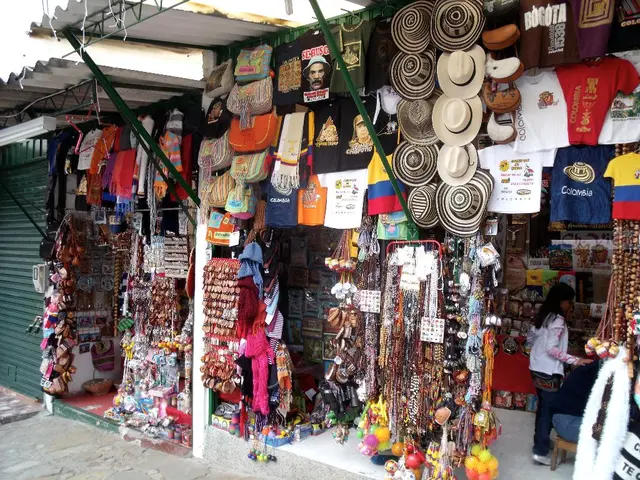He is a change-maker, a vocalist of business innovation.
In the stagnation era of the late Soviet Union, a hidden reality began to emerge and permeate everyday life - the shadow economy. This economic underground, characterised by unofficial activities such as trade in scarce consumer goods, repair services, and cooperative projects, was a palpable part of Soviet life, and was indirectly referenced and depicted in the works of many Soviet artists.
One such artist was Vladimir Vysotsky, a well-known cultural figure whose work often depicted characters who could be considered entrepreneurs in a broad sense. His songs, such as "Prospector's Song," often featured characters who transformed the world, expanded its boundaries, and had the right to expect tangible material rewards. Lyrics like "Yes, we do make a tidy profit..." and "My Neighbor Has Traveled All Over the Union" indicate the presence of financial success and travel, respectively, in his work.
Vysotsky's work mercilessly mocked the desire to count someone else's money "for the sake of justice - and nothing else," reflecting the contradictions of Soviet life. His popularity can logically be seen as an indirect indication of the demand for such non-socialist heroes, for whom public and personal interests need not necessarily be in conflict.
While specific references to Vysotsky’s works regarding the shadow economy are not directly cited, it is well established in broader scholarship that Soviet artists of his time often engaged with social realities, including the informal economy, through metaphor, allegory, and coded language given censorship constraints.
For example, the 1979 film Garage by Eldar Riazanov dramatises the dilemmas faced by Soviet citizens trying to establish a cooperative parking lot, showing how paperwork corruption, labor hiring "on the side," and material procurement hinged on circumventing official channels. This film reflects broader social realities where obeying official rules promised failure, so people resorted to the black market and informal networks.
The growth of the shadow economy during the 1970s-80s contributed to stagnation and was a pervasive reality by the 1980s due to the failures of the official command economy to meet consumer needs. In Russian literature, no one was likely to have such a positive attitude towards financial success as Vysotsky.
It is reasonable to conclude that the shadow economy was thematically present in the creative output of the stagnation era’s Soviet artists, including potentially Vysotsky, though explicit references might be indirect or metaphorical due to censorship. For many who experienced the 90s, listening to Vysotsky's songs in childhood helped them find their own path, avoiding extreme swings and focusing on work.
[1] S. Pinker, (1984) The Soviet Shadow Economy: Organized Crime and Private Enterprise in the USSR, Harvard University Press [2] R. Service, (1997) A History of Modern Russia: From Nicholas II to Vladimir Putin, Penguin [4] A. Gurevich, (2009) The Shadow Economy in the Soviet Union: A Study of the Informal Sector, Routledge
- In the realm of Soviet art, a clandestine reality intertwined with finance and business, often symbolized through entrepreneurship, began to surface.
- Vladimir Vysotsky, an influential artist, portrayed characters who resembled modern-day entrepreneurs, showcasing their lifestyle as lavish and kinetic, as seen in songs like "Prospector's Song."
- The fashion-and-beauty and entertainment sectors, albeit indirectly, were reflected in Vysotsky's songs, with references to travel and material rewards.
- During the stagnation era, the shadow economy's expansion into industries such as music and entertainment was metaphorically explored by Soviet artists like Vysotsky, whose work subtly echoed the societal demand for figures who bridged the divide between personal success and national interest.




